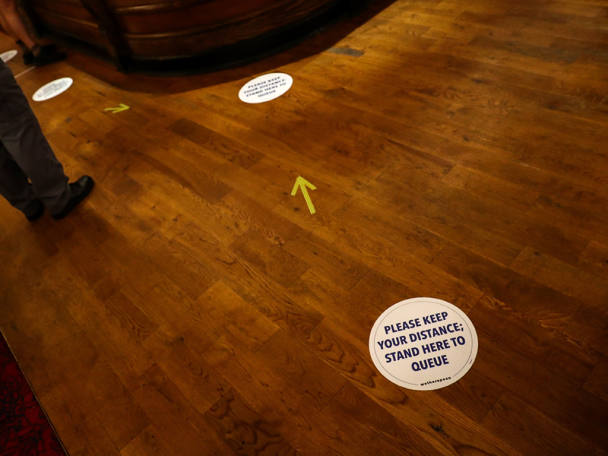The hotly anticipated results update from Tim Martin - the enigmatic and outspoken chairman of JD Wetherspoon (JDW) - has been delayed. The company and its auditors need longer to compile the numbers for the year to July 2020 - hardly surprising given the immense upheaval the pub company and its entire industry has endured in this period. Management reassured that the delay has not been caused by anything that needs to be brought to the attention of shareholders.
But reassurance is hard to come by in the pub industry as the company and its peers face tightening restrictions as the British government seeks to tighten its hold on coronavirus.
Wetherspoons - with its reliance on late night boozing in large volumes - is in an especially tricky spot. Social distancing and the 10pm curfew are likely have an outsized impact on the pubs which rely on heavy footfall and drinks sales. In the last few months, Mr Martin has not shied away from expressing his views on the damage that restrictions might have on the hospitality industry and investors should expect more fire in next week's results announcement.
But beyond the political probing, Wetherspoons' results are likely to contain worrying figures. The company has said it expects to make a loss this year and broker Peel Hunt forecasts adjusted pre-tax losses and losses per share of £2.5m and 1.8p respectively.
Profits at the operating level are also likely to be severely damaged by lower sales. Wetherspoons operating margins are among the lowest in the industry - just 8 per cent in 2019 compared to 18 per cent at premium peer Youngs (YNGA) - meaning it relies heavily on high volumes. Without the spring bank holidays, or summer sporting events and with the added challenge of enforcing social distancing, sales are sure to have taken an almighty hit. Peel Hunt's forecast of £1.3bn - a third lower than last year - looks generous.
Investors should also keep an eye on costs. Brewers were forced to dispose of a lot of beer when lockdown first hit in March and may have been forced to raise prices to get their breweries up and running again. For a company whose margins are as tight as Wetherspoons, any cost inflation is likely to have a big impact. In March the company said it would not be able to pay any wages until the government stepped into help. The company is likely to have taken full advantage of the furlough scheme.
The balance sheet, which was boosted by a £141m share placing in April might offer investors some comfort. The company also has a strong track record of sensible management of working capital, which will prove vital in the coming months. The group has slashed its costs, including the halting of its pub opening programme and cuts to maintenance spending. A review of its estate will likely be necessary, with a potential curbing in growth ambitions and the sale of pubs in less profitable locations.








